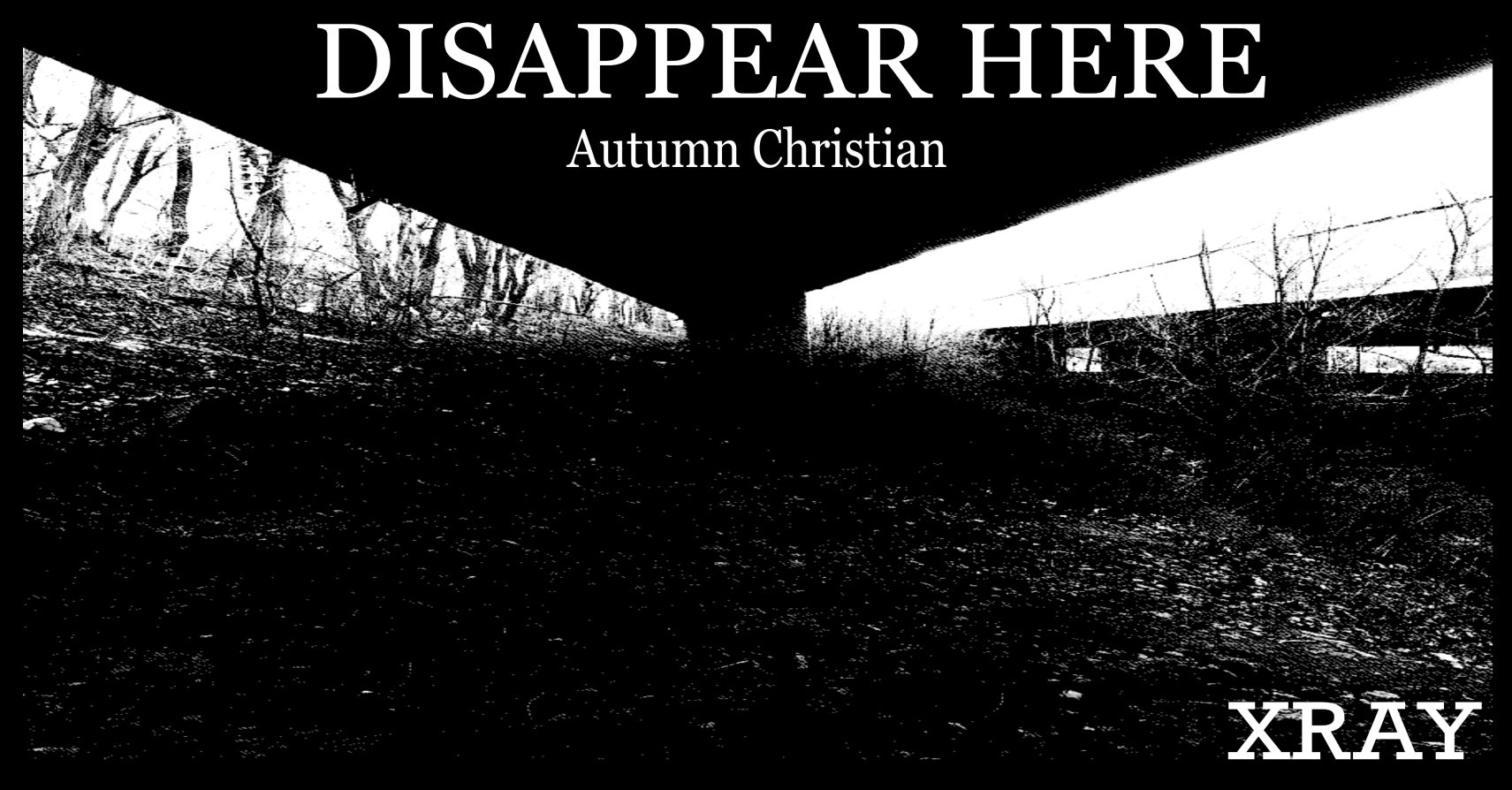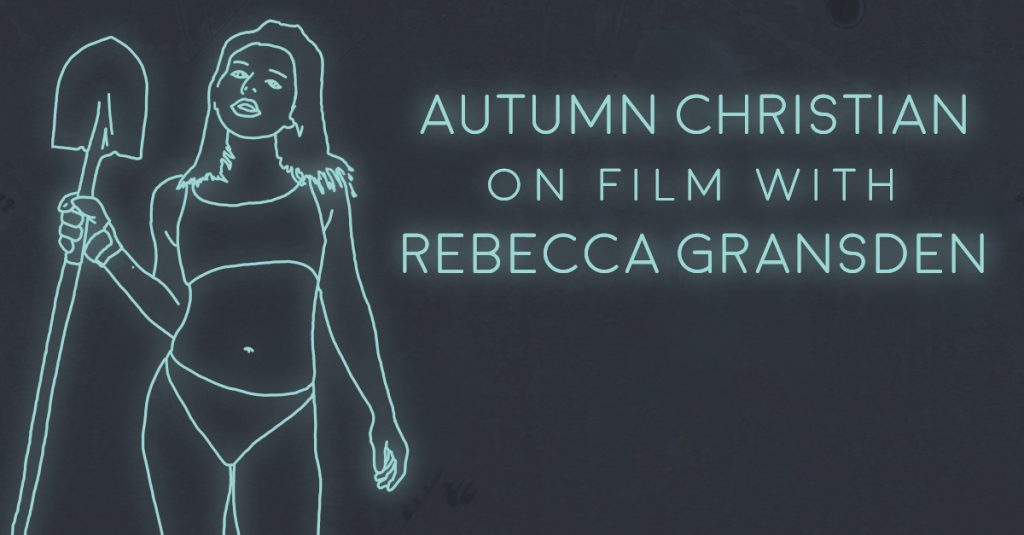
DISAPPEAR HERE by Autumn Christian
I wanted a girl I could take my sunglasses off for. I wanted a girl that wanted to hold my reflection in the center of her eyes.
Autumn Christian is a fiction writer from Texas. She is the author of several books including Girl Like a Bomb and The Crooked God Machine. She has written for several video-games, including Battle Nations and State of Decay 2. When not writing, she is usually practicing her side kicks and running with dogs, or posting strange and existential Instagram selfies.

I wanted a girl I could take my sunglasses off for. I wanted a girl that wanted to hold my reflection in the center of her eyes.

Quiet like a bomb waiting for its lit fuse, Autumn Christian has steadily accrued a series of intrepid releases. Nominally designed to satisfy certain genre cravings, Christian’s writing transcends any label simply by being uncommonly good. Her work is strange and provocative, endlessly imaginative, full-blown addicted to ideas, and fearless. For any insight into a mind this committed to creative freedom, the natural starting point is to visit the environment Christian grew up in. ‘I was born in Oklahoma City, but my parents moved to Fort Worth when I was a toddler so my dad could pursue a career in…